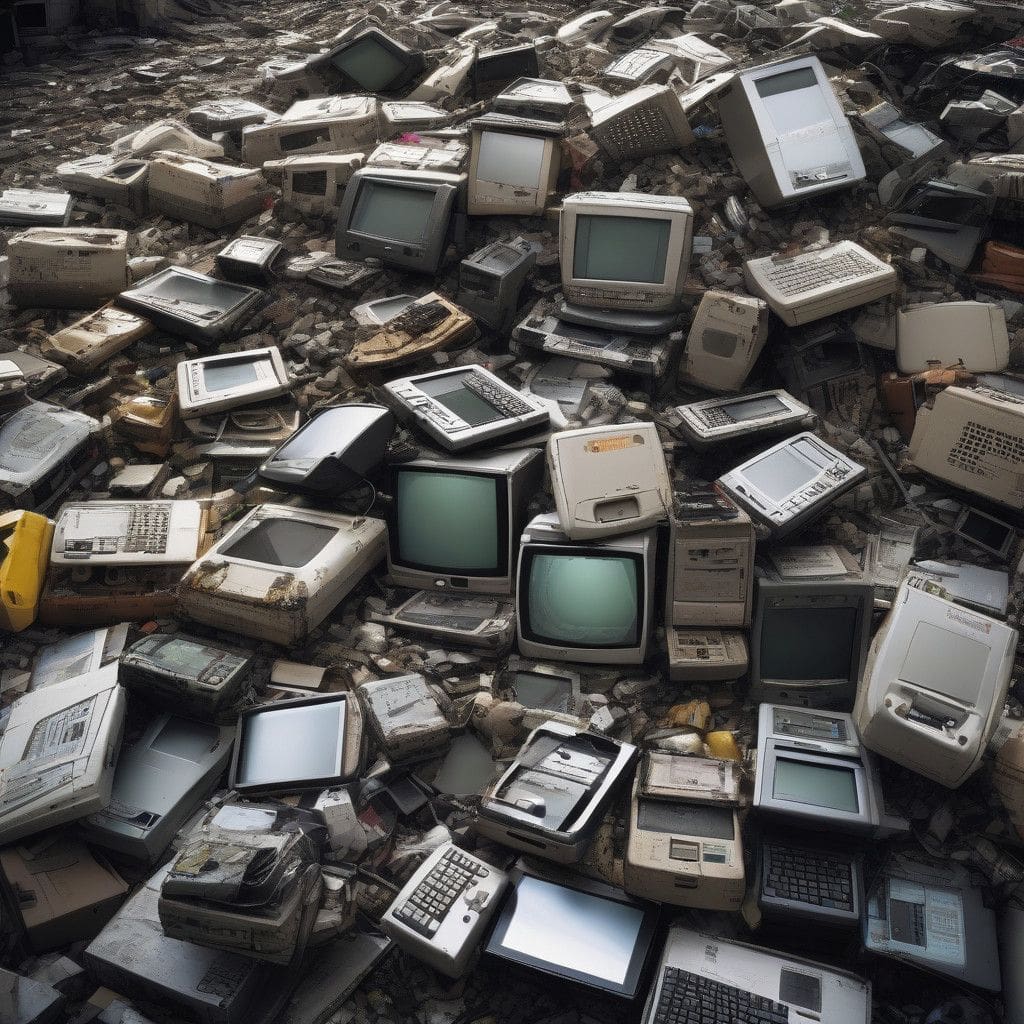Turkey has emerged as the 17th largest producer of electronic waste, generating an alarming 700,000 tons annually. However, only a meager 10 percent of this e-waste finds its way to recycling facilities. This staggering statistic not only reveals an environmental crisis but also highlights significant economic implications for the nation. It is estimated that Turkey incurs an economic loss of approximately 1 billion euros each year due to inadequate recycling practices.
The composition of e-waste in Turkey is diverse, with small household devices such as toasters and vacuum cleaners making up a significant portion, accounting for 37 percent of total e-waste. Major household goods represent 20 percent, heaters 17 percent, while laptops, computers, and mobile devices contribute 15 percent and 9 percent, respectively. This distribution suggests a potential for targeted recycling initiatives that could improve e-waste management and sustainability.
Ali Rıza Öner, the head of a waste-to-energy association, emphasizes the critical role of integrating e-waste into Turkey’s economy. He points out that while extracting one kilogram of iron from rock requires processing 200 kilograms, the same amount can be sourced from just two kilograms of electronic waste. This comparison underscores the immense resource savings that could be achieved through improved recycling practices.
Improper disposal of e-waste poses dire environmental, health, and cybersecurity risks. Electronic devices often contain hazardous materials such as heavy metals and chemicals, which can leach into the soil and water supply when improperly discarded. In addition, abandoned devices can become gateways for cyber-attacks if they are not securely disposed of. The risks of data breaches exemplified by recent geopolitical tensions, such as Israel’s attacks on Lebanon, highlight the urgent need for secure e-waste disposal methods.
Addressing Turkey’s low e-waste recycling rate is crucial for several reasons. First, improving recycling practices helps recover valuable resources, reducing the demand for raw materials. Second, it mitigates environmental hazards by preventing harmful substances from entering landfills and ecosystems. Third, enhancing recycling efforts can significantly alleviate the economic losses currently faced by Turkey, converting what is now a financial drain into an opportunity for innovation and growth.
Countries facing similar challenges have implemented successful recycling programs that could serve as models for Turkey. For instance, Germany’s e-waste recycling system is renowned for its efficiency, collecting 1.8 million tons of e-waste in 2020 with a recycling rate exceeding 60 percent. By emphasizing public awareness and providing accessible recycling facilities, Germany has become a leader in sustainable e-waste management.
To replicate such success, Turkey must prioritize investment in infrastructure and educational campaigns. Establishing more recycling centers, offering incentives for proper disposal, and engaging the public in e-waste recycling efforts are essential steps for the country. Collaboration with technology companies and NGOs will further bolster these initiatives, creating a robust e-waste management ecosystem.
The time for action is now. Turkey has the potential to transform its e-waste crisis into an innovative opportunity. By improving recycling rates, the nation can safeguard its environment, protect its citizens’ health, and bolster its economy. It is essential for policymakers, businesses, and the public to work together and commit to more effective e-waste recycling practices. Without such collective effort, the consequences of neglecting this urgent issue will only escalate, to the detriment of both current and future generations.












